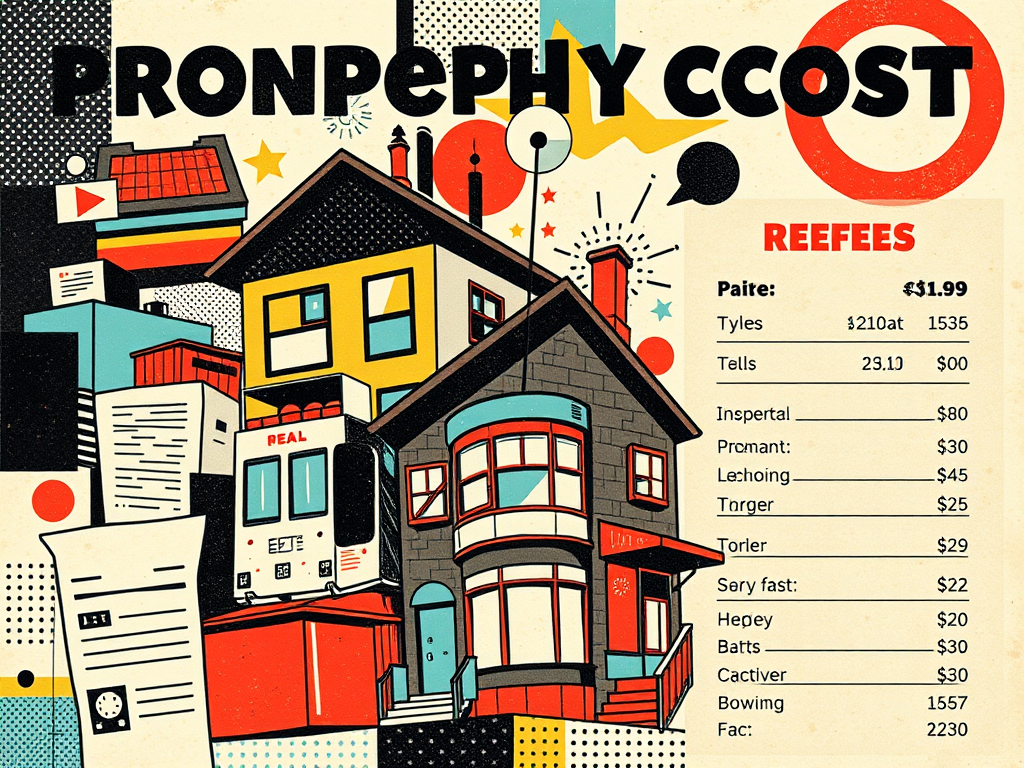
Costs of Buying Property in Greece: Taxes, Fees, and Hidden Expenses
Reading time: 15 minutes
Table of Contents
- Introduction
- Overview of the Greek Property Market
- Initial Purchase Costs
- Ongoing Costs of Property Ownership
- Hidden Expenses to Consider
- Tax Implications for Foreign Buyers
- Financing Options and Associated Costs
- Legal Considerations and Fees
- Impact of Economic Factors on Property Costs
- Conclusion
- FAQs
Introduction
Greece, with its stunning landscapes, rich history, and Mediterranean lifestyle, has long been an attractive destination for property investors and those seeking a vacation home. However, navigating the costs associated with purchasing property in Greece can be complex, especially for foreign buyers. This comprehensive guide aims to demystify the various expenses involved in buying and owning property in Greece, from initial purchase costs to ongoing fees and potential hidden expenses.
As we delve into the intricacies of the Greek property market, it’s crucial to understand that economic dynamics play a significant role in shaping costs and opportunities. The interplay between housing market trends, labor indicators, and broader economic factors creates a nuanced landscape that savvy investors must carefully navigate.
Overview of the Greek Property Market
Before we break down the specific costs, let’s examine the current state of the Greek property market. Recent years have seen a resurgence in interest, particularly from foreign buyers, despite the economic challenges Greece has faced.
Market Trends and Indicators
The Greek property market has shown remarkable resilience in recent years, with several key trends emerging:
- Steady increase in property prices, especially in tourist-heavy areas and major cities
- Growing interest from foreign investors, particularly in luxury properties and athens property
- Renewed confidence in the Greek economy, driving both domestic and international demand
- Expansion of the short-term rental market, influencing property values in popular destinations
These trends have contributed to a more dynamic and competitive property market, which in turn affects the various costs associated with purchasing and owning property in Greece.
Initial Purchase Costs
When buying property in Greece, several upfront costs must be considered. These initial expenses can significantly impact the overall investment and should be carefully factored into any budget calculations.
Property Transfer Tax
One of the most significant initial costs is the property transfer tax. As of 2023, this tax is set at 3% of the property’s assessed value. It’s important to note that the assessed value may differ from the purchase price, as it’s determined by the tax authorities based on objective criteria.
Notary Fees
Notary fees in Greece typically range from 0.65% to 1% of the property’s value. These fees cover the notary’s services in preparing and executing the purchase deed, which is a crucial legal document in Greek property transactions.
Legal Fees
Engaging a lawyer is highly recommended when purchasing property in Greece, especially for foreign buyers. Legal fees usually range from 0.5% to 1% of the property value, depending on the complexity of the transaction and the services required.
Real Estate Agent Fees
If you’re working with a real estate agent, their commission is typically around 2% of the property’s sale price. This fee is usually split between the buyer and seller, but arrangements can vary, so it’s essential to clarify this point early in the process.
Ongoing Costs of Property Ownership
Owning property in Greece comes with several recurring expenses that should be factored into long-term financial planning.
Annual Property Tax (ENFIA)
The Unified Property Tax (ENFIA) is an annual tax levied on all property owners in Greece. The amount varies based on the property’s size, location, and other factors. On average, property owners can expect to pay between €2 to €13 per square meter annually, though rates can be higher for premium properties.
Maintenance and Utilities
Regular maintenance costs and utility bills are ongoing expenses that can vary widely depending on the property type and location. For apartments, there are often monthly communal charges (koinochrista) that cover building maintenance and shared utilities.
Insurance
While not mandatory, property insurance is highly recommended. Annual premiums typically range from 0.05% to 0.15% of the property’s value, depending on coverage and location.
Hidden Expenses to Consider
Beyond the more obvious costs, there are several potential hidden expenses that buyers should be aware of when purchasing property in Greece.
Renovation and Compliance Costs
Many properties in Greece, especially older ones, may require significant renovation or updates to meet current building standards. These costs can be substantial and should be factored into the overall investment.
Currency Exchange Fees
For foreign buyers, currency exchange rates and associated fees can have a significant impact on the overall cost of purchasing and maintaining a property in Greece.
Property Management Fees
If you’re not residing in Greece full-time, you may need to hire a property management company to oversee your investment. These services typically cost between 8% to 12% of rental income for properties that are let out.
Tax Implications for Foreign Buyers
Foreign property owners in Greece face specific tax considerations that can affect the overall cost of ownership.
Income Tax on Rental Income
If you plan to rent out your property, be aware that rental income is subject to taxation in Greece. The tax rate starts at 15% for annual rental income up to €12,000 and increases progressively for higher amounts.
Capital Gains Tax
While currently suspended until 2023, capital gains tax on property sales may be reintroduced in the future. When active, this tax is typically set at 15% of the profit made on the sale.
Financing Options and Associated Costs
For buyers looking to finance their property purchase in Greece, understanding the available options and their associated costs is crucial.
Mortgage Rates and Terms
Greek banks offer mortgages to both residents and non-residents, though terms may be less favorable for foreign buyers. Interest rates typically range from 3% to 5%, with loan-to-value ratios generally capped at 70-80% for non-residents.
Mortgage-Related Fees
Additional costs associated with obtaining a mortgage in Greece may include:
- Application fees
- Property valuation fees
- Mortgage registration fees
- Life insurance premiums (often required by lenders)
Legal Considerations and Fees
Navigating the legal aspects of property purchase in Greece is essential for a smooth transaction and to avoid potential pitfalls.
Title Searches and Due Diligence
Thorough title searches and due diligence are crucial to ensure there are no outstanding claims or issues with the property. These searches incur additional fees but are essential for protecting your investment.
Contract Review and Negotiation
Legal fees for contract review and negotiation can vary but are typically included in the overall legal fees mentioned earlier. However, complex transactions may incur additional costs.
Impact of Economic Factors on Property Costs
The Greek property market, like any other, is influenced by broader economic trends and indicators. Understanding these factors can help buyers make more informed decisions and anticipate potential changes in costs.
Labor Market Dynamics
The stability of the Greek labor market has a direct impact on property demand and, consequently, prices. Recent data shows:
- Unemployment rates continuing a gradual decline
- Increasing wage growth in certain sectors
- Evolving workforce demographics influencing housing preferences
Inflation and Interest Rates
Inflation rates and central bank policies can significantly affect property costs, both in terms of purchase prices and ongoing expenses. Current trends indicate:
- Moderate inflation levels impacting construction costs and rental yields
- Interest rate policies influencing mortgage affordability and investment returns
Conclusion
Purchasing property in Greece offers exciting opportunities, but it’s crucial to approach the process with a comprehensive understanding of all associated costs. From initial purchase expenses to ongoing taxes and potential hidden fees, thorough research and professional guidance are essential for making informed decisions.
As we’ve seen, the costs of buying and owning property in Greece are influenced by a complex interplay of market trends, economic indicators, and regulatory factors. By staying informed about these dynamics and carefully planning for all expenses, investors can navigate the Greek property market more effectively and potentially reap significant rewards.
Remember, while the allure of owning a piece of Greek paradise is strong, successful property investment requires a balanced approach that considers both the emotional appeal and the financial realities. With careful planning and a clear understanding of the costs involved, your Greek property investment can be not just a dream realized, but also a sound financial decision.
FAQs
1. Are there any restrictions on foreign ownership of property in Greece?
Generally, there are no significant restrictions on foreign ownership of property in Greece. However, properties in border areas and some islands may require additional permits or approvals for non-EU citizens.
2. Can I rent out my property in Greece as a foreign owner?
Yes, foreign owners can rent out their properties in Greece. However, you must register with the Greek tax authorities and obtain a Greek tax number (AFM) to declare rental income.
3. Are there any tax benefits for renovating older properties in Greece?
Greece occasionally offers tax incentives for renovating older or historically significant properties. These benefits can include VAT reductions on renovation costs or property tax exemptions, but they are subject to specific conditions and may change over time.
4. How does the Greek Golden Visa program affect property costs?
The Golden Visa program, which offers residency permits to non-EU citizens investing in Greek property, has contributed to increased demand and prices in certain areas. Properties eligible for the program (typically those valued at €250,000 or more) may command a premium.
5. What are the typical timeframes for completing a property purchase in Greece?
The process of purchasing property in Greece usually takes between 1-3 months from offer acceptance to completion. However, this can vary depending on factors such as property type, location, and any complexities in the legal process.

Article reviewed by Anna Mayer, Residential Property Investment Advisor | Luxury Market Specialist, on May 15, 2025
